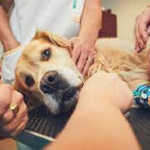Your animal companion just ate something that you think may be toxic, your dog or cat just got diagnosed with a condition you don’t fully understand, your puppy is limping after a walk in the park…
What should you do? Should you go to your family veterinarian right away or can your animal companion afford to wait? When many pet owners are in this situation, they go online for advice and to learn more.
The problem is, many things on the internet are written by people with little to no medical training and often reflect personal experiences or opinions that may not apply to your pet’s immediate need.
If you’re the type that like to do a little online research, that’s great. But it’s important to know which sites can be trusted. Here are some things to do to find god places for information:
- Research ‘who’ is really behind a website (and the credentials that make that person a bona fide expert) is a must for everyone
- Besides doing your due diligence and finding out who’s behind the online info, how can you choose information sources carefully? Ask your veterinarian for websites that that they trust. Let them be your resource and an informed sounding board.
- Other good websites that that you may not know about and have minimal advertising or sponsorship include:
- The American Veterinary Medical Association – public section
- The education section of ASPCA
- VeterinaryPartner.com
- SPCA poison control
If you’re still having an issue and are unsure what to do, call your family veterinarian and speak with your veterinarian or one of his/her veterinary technicians. These are people trained in the field and they should be able to guide you on what’s needed at that time.
If it’s after hours or over a holiday, contact your nearest 24/7 animal emergency facility. These facilities are there to assist when your family veterinarian is closed.


